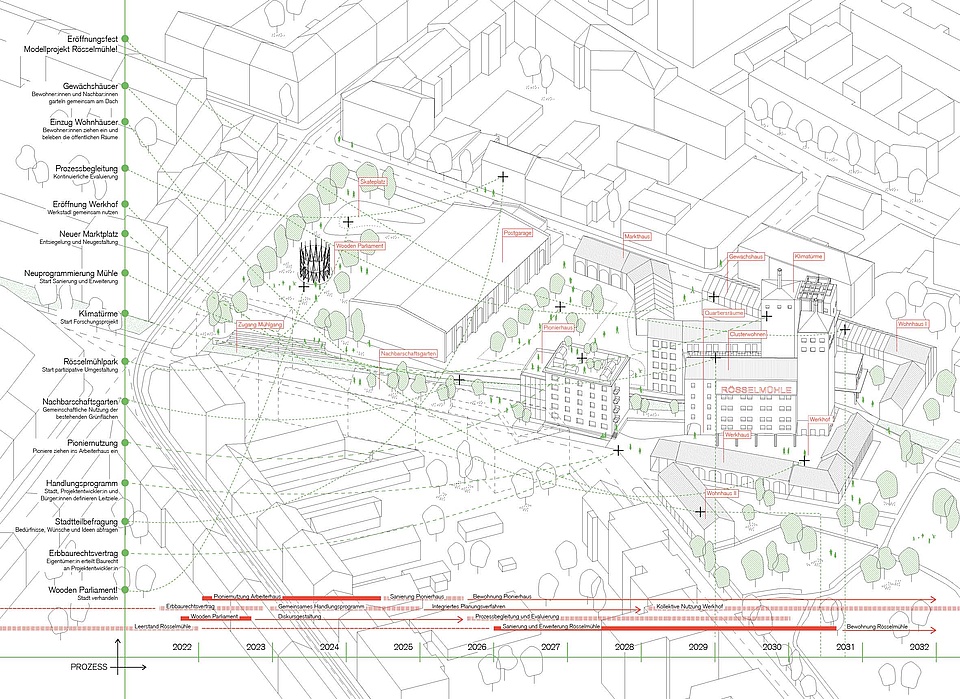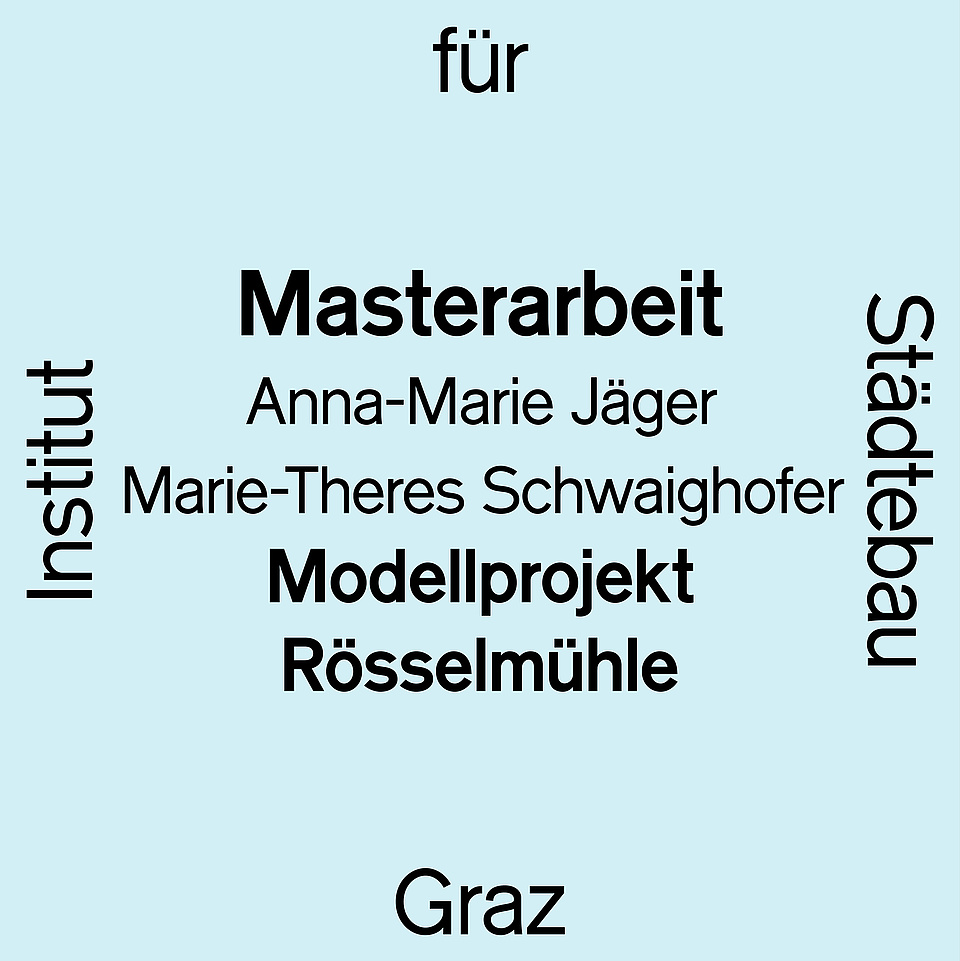Master's thesis Anna-Maria Jäger & Marie-Theres Schwaighofer: Case Study Rösselmühle

Model Project Rösselmühle: Principles for Equitable and Regenerative Urban (District) Development in Gries
The master’s thesis Model Project Rösselmühle addresses the topic of equitable and regenerative urban (district) development in the context of Gries, a district of Graz shaped by migration. At the heart of the district lies the Rösselmühle, a former industrial site that ceased operations in 2014. The question of its future development serves as the starting point: the goal is to create urban and living spaces that reflect the diversity of society. This thesis examines the architectural, urban, and social significance of the Rösselmühle, concluding that the site's future, in pursuit of a fairer city, must be negotiated with the city’s residents.
The finite nature of land results in increasingly scarce affordable spaces for living, working, and social activities, intensifying displacement pressures, particularly for economically disadvantaged groups. Urban planning inherently deals with the "problem of scarcity," a concept that shapes both our visions of societal coexistence and the design of living spaces. However, an alternative understanding of scarcity—beyond its negative connotations—reveals a dynamic potential: that of negotiation. Thus, the thesis focuses on actor- and process-oriented planning cultures. By analyzing six reference projects, it demonstrates the significant advantages of cooperative, process-oriented approaches while highlighting the need to further develop planning tools. Alternative planning instruments establish frameworks for projects of high architectural and urban quality that also provide societal benefits. These reference projects are characterized as central, accessible, adaptable, and open to appropriation, fostering social cohesion within urban communities.
Reprogramming the Rösselmühle offers an opportunity to pilot a cooperative urban (district) development process in Graz. Since its closure, the future of the mill has been a highly debated topic in the city's urban planning discourse. Initial considerations include the rezoning of the centrally located industrial site to residential use, followed by decisions regarding the preservation or demolition of the former mill buildings. The diverse ideas about the mill’s future reflect the often conflicting needs, demands, and perspectives of stakeholders, inevitably leading to use conflicts. However, these conflicts should not be viewed solely as negative. When productively addressed, they provide opportunities for experimentation and innovation.
Through an architectural and urban design proposal, the Model Project Rösselmühle outlines the transformation of the mill into a community-oriented project characterized by high density of use, including spaces for housing, small businesses, culture, and social activities, as well as diverse green and open spaces. The model project aims to act as a catalyst for embedding the principles of the common good within the Gries district. Based on this project, design principles, a strategic plan, and a process plan for equitable and regenerative district development are derived. These define design parameters, establish guiding goals, and envision the Gries district as a place of societal diversity.
Because "living together is added value. Building culture is added value. Cities are added value."
